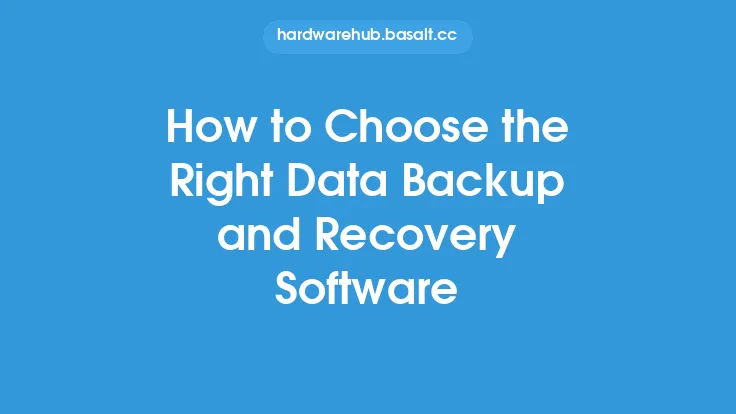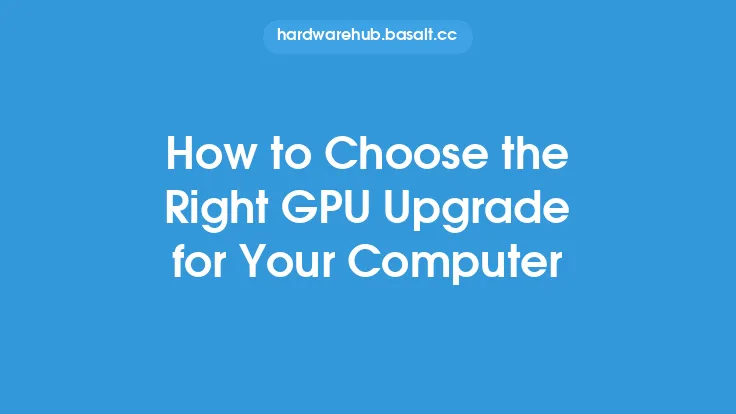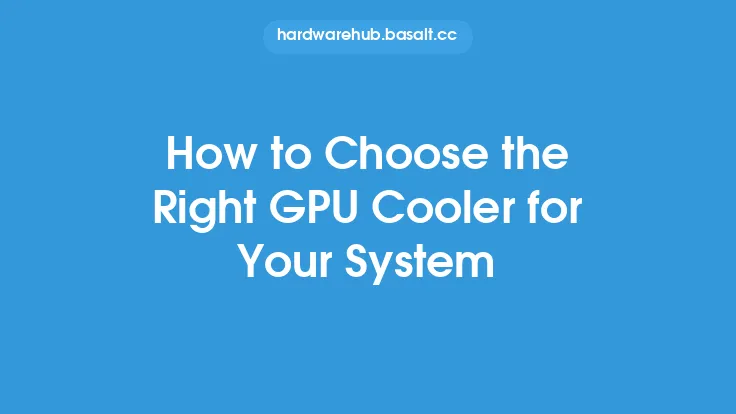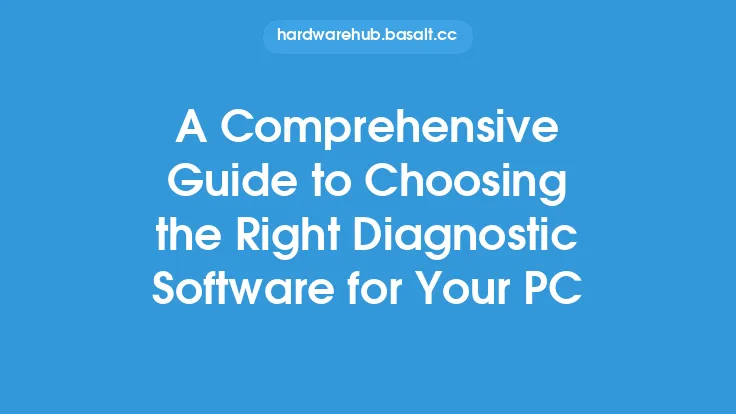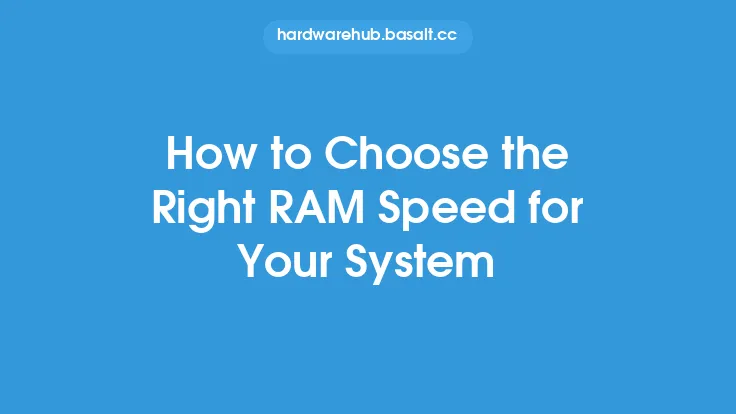When it comes to choosing the right GPU benchmarking software, there are several factors to consider. With so many options available, it can be overwhelming to decide which one is best for your needs. In this article, we will explore the key considerations and features to look for in a GPU benchmarking software, as well as some popular options and their strengths and weaknesses.
Key Considerations
Before selecting a GPU benchmarking software, it's essential to consider your specific needs and goals. Are you a gamer looking to optimize your system for the latest games, or are you a content creator seeking to maximize your GPU's performance for tasks like video editing and 3D rendering? Different software may be better suited for different use cases, so it's crucial to identify your priorities.
Another critical factor is the type of GPU you have. Different software may be optimized for specific GPU architectures, such as NVIDIA or AMD, so it's essential to choose software that is compatible with your hardware. Additionally, consider the level of detail you need in your benchmarking results. Some software may provide more in-depth analysis and detailed metrics, while others may offer a more straightforward and easy-to-understand overview of your GPU's performance.
Features to Look for
When evaluating GPU benchmarking software, there are several key features to look for. These include:
- Support for multiple GPU architectures: Look for software that supports a wide range of GPU architectures, including NVIDIA, AMD, and Intel.
- Variety of benchmarking tests: A good GPU benchmarking software should offer a range of benchmarking tests, including synthetic benchmarks, real-world applications, and stress tests.
- Detailed metrics and analysis: The software should provide detailed metrics and analysis of your GPU's performance, including frame rates, temperatures, and power consumption.
- Customization options: Look for software that allows you to customize the benchmarking tests and settings to suit your specific needs.
- User-friendly interface: A user-friendly interface is essential for making it easy to navigate and understand the benchmarking results.
Popular GPU Benchmarking Software
There are many popular GPU benchmarking software options available, each with their strengths and weaknesses. Some of the most well-known options include:
- 3DMark: A widely used and respected benchmarking software that offers a range of tests, including synthetic benchmarks and real-world applications.
- Unigine Heaven: A popular benchmarking software that offers a range of tests, including synthetic benchmarks and stress tests.
- GPU-Z: A lightweight and easy-to-use software that provides detailed information about your GPU, including its specifications, temperatures, and performance metrics.
- FurMark: A stress testing software that pushes your GPU to its limits, providing a detailed analysis of its performance and stability.
Technical Considerations
When choosing a GPU benchmarking software, there are several technical considerations to keep in mind. These include:
- API support: Look for software that supports the latest graphics APIs, including DirectX, Vulkan, and OpenGL.
- Multi-threading support: A good GPU benchmarking software should support multi-threading, allowing you to take full advantage of your CPU's processing power.
- 64-bit support: Ensure that the software is compatible with 64-bit operating systems, which offer improved performance and stability.
- Overclocking support: If you're an overclocker, look for software that allows you to customize and tweak your GPU's settings, including clock speeds, voltages, and fan speeds.
Conclusion
Choosing the right GPU benchmarking software can be a daunting task, but by considering your specific needs and goals, as well as the key features and technical considerations, you can make an informed decision. Whether you're a gamer, content creator, or simply looking to optimize your system's performance, there is a GPU benchmarking software out there that can help you achieve your goals. By taking the time to research and evaluate the different options, you can find the perfect software to help you unlock your GPU's full potential.

